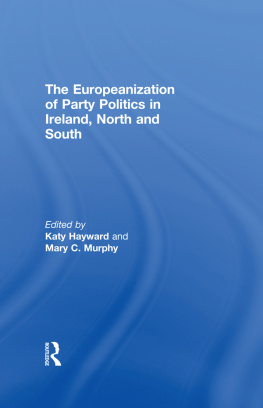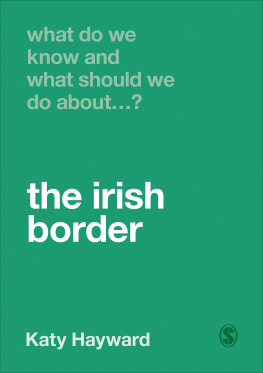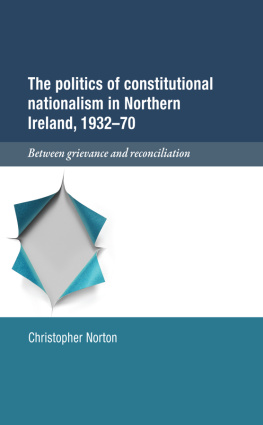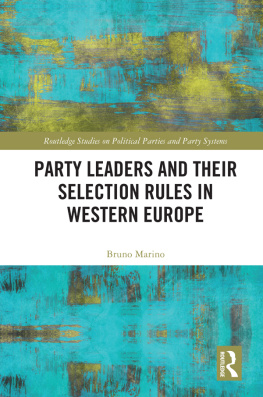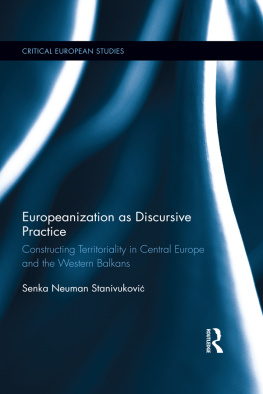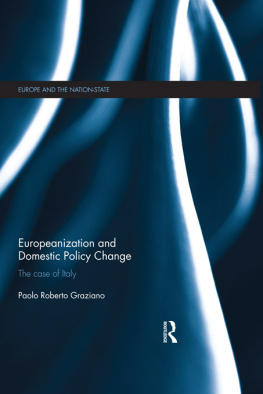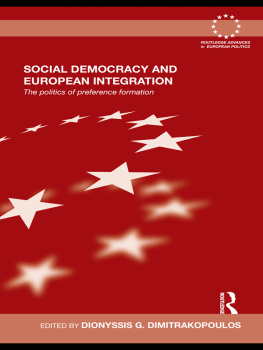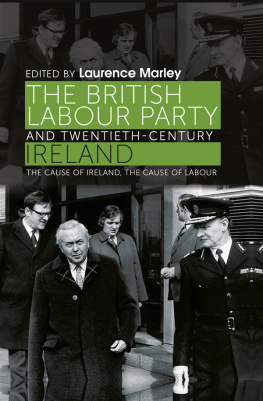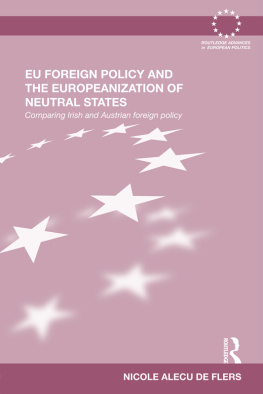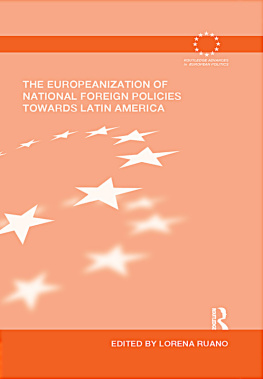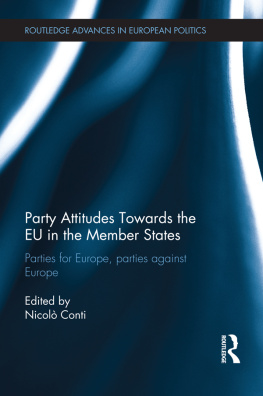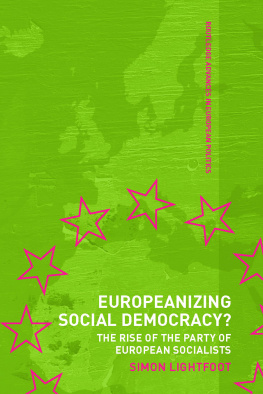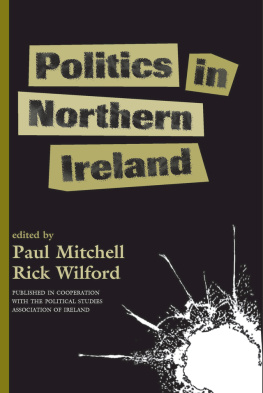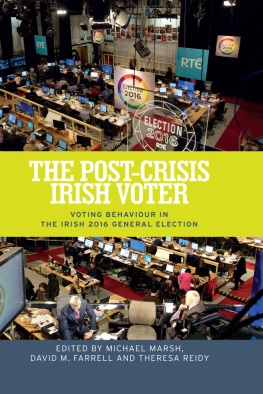The Europeanization of Party Politics in Ireland, North and South
National experience of European Union membership tends to centre upon the behaviour, actions and discourses of political parties. This book is the first of its kind to examine and compare the Europeanization of all main political parties in the Republic of Ireland and Northern Ireland.
The book presents an in-depth study of the tenuous place of Europe amid the changing dynamics of party politics on the island of Ireland. Although elements of Europeanization are evident in all the parties considered here (including those most critical of European integration), they have been significantly curtailed by enduring resistance to and conditions placed upon EU influence within the parties themselves. Even parties European policies are often characterized by pragmatism and the prioritizing of national or local party concerns.
Beyond Ireland, the systematic testing of the Europeanization thesis presented here identifies ways in which the essential interests of national and regional political parties can moderate the impact of the EU on wider public debate. Furthermore, it reveals the often-decisive importance of the (sub-) national domestic political context in determining the nature and depth of Europeanization processes. This has implications not only for the future of Irelands relationship with the EU but also for the nature of European integration itself.
This book was published as a special issue of Irish Political Studies.
Katy Hayward is Lecturer in Sociology at the School of Sociology, Social Policy and Social Work, Queens University Belfast.
Mary C. Murphy is College Lecturer in Politics at the Department of Government, University College Cork.
Dr Hayward and Dr Murphy are co-conveners of the European Studies Specialist Group of the Political Studies Association of Ireland.
The Europeanization of Party Politics in Ireland, North and South
Edited by Katy Hayward and Mary C. Murphy
First published 2010 by Routledge
2 Park Square, Milton Park, Abingdon, Oxon, OX14 4RN
Simultaneously published in the USA and Canada
by Routledge
270 Madison Avenue, New York, NY 10016
Routledge is an imprint of the Taylor & Francis Group, an informa business
2010 Taylor & Francis
This book is a reproduction of Irish Political Studies, vol. 24, issue 4. The Publisher requests to those authors who may be citing this book to state, also, the bibliographical details of the special issue on which the book was based.
All rights reserved. No part of this book may be reprinted or reproduced or utilised in any form or by any electronic, mechanical, or other means, now known or hereafter invented, including photocopying and recording, or in any information storage or retrieval system, without permission in writing from the publishers.
British Library Cataloguing in Publication Data
A catalogue record for this book is available from the British Library
ISBN10: 0-415-57891-4
ISBN13: 978-0-415-57891-2
Mary C. Murphy* & Katy Hayward**
*University College Cork, Ireland; **Queens University Belfast, Northern Ireland, UK
Introduction
Political party systems in both parts of Ireland north and south are typically regarded as unconventional. Neither has traditionally fitted neatly into the established party system models found in most other European states (for Republic of Ireland see Carty, 1976; Mair, 1979; Sinnott, 1984; for Northern Ireland see Mitchell, 1991, 1995). The uniqueness of the party systems in the Republic of Ireland and Northern Ireland has meant that, historically, studies of political parties and party systems, have tended to focus on the peculiarities and idiosyncrasies of each respective system.
The party system in the Republic of Ireland demonstrates a number of unusual characteristics. The strong presence of the centre is in contrast to many other European states. Indeed even the very character of centre parties in Ireland, i.e. Fianna Fil and Fine Gael, means that they do not fit readily into the main European party families. The Irish party system is also unusual in having traditionally had only a small liberal party now absent since the demise of the Progressive Democrats. The low levels of support for parties of the left, including the Labour Party and the Green Party, and the relatively high number of independents also mark Irelands party system out as distinct. Although most authors accept that Irelands party system is somewhat unusual relative to its European neighbours, there is some dispute as to the precise nature of this distinctiveness. Some have pointed to the impact of recent political developments on the party system, for example, and suggest a convergence between Ireland and other more standard European models (see summarized discussion by Weeks, 2009).
In Northern Ireland, the party system has been labelled a dual ethnic party system (see Mitchell, 1991). The absence of a strong leftright divide is similarly evident here. The party system in Northern Ireland however, is constructed along different lines than that in the Republic. Party politics is polarized around a profound constitutional cleavage i.e. support for a united Ireland versus support for maintenance of the Union with the United Kingdom. With the exception of the Alliance Party of Northern Ireland (APNI) and the Green Party, the four largest parties draw electoral support from one of the two communities in Northern Ireland resulting in a party system which is plausibly represented as two systems, in which party competition occurs within nationalist and unionist blocs (Evans & Duffy, 1997: 47). The impact of this party system structure is such that it serves to maintain, and may even exacerbate, the community divide in Northern Ireland. Attempts to win votes from the other community are often viewed with suspicion by voters, and parties may be punished rather than rewarded for any such reconciliatory moves. In effect,
The more serious consequence of intra-ethnic competition is that it makes conflict resolution much more difficult. The enlightened compromises required to resolve ethno-national conflicts are less likely to be forthcoming when there are rival parties in each bloc ready to profit by denouncing any deal as a sell-out. (Mitchell, 1999: 114115)
More recent studies have sought to downplay the perceived negative consequences of the Northern Ireland dual ethnic party system (see Mitchell et al., 2009). Such views, however, do not detract from the enduringly distinctive nature of the party system.
Analysis of both the Irish and Northern Irish party systems have typically focused on historic and domestic influences in explaining the defining features of each. Consideration of external influences and in particular the impact of the European Union (EU) on either party system, or indeed on individual parties within each system, has been minimal. This volume addresses this omission and, in so doing, broadens the study and analysis of political parties and party systems on the island of Ireland. The papers which follow are rooted in the Europeanization literature (see below). They acknowledge and qualify the impact of the EU on the evolution of political parties and contribute to the development of a more complete and nuanced overview of political parties in both parts of Ireland.
Importantly, a distinction must be made between national and sub-national political parties. Ladrech and Mairs work focuses on the former. However all but one of the Northern Ireland political parties examined here are

